The content of the article
Pulse rate is an indicator of the work of the heart, the rhythm of which changes due to emotional experiences, anxiety, excessive consumption of food, physical activity. The attending physician, after listening to the pulse, will determine how rhythmically the heart muscle works, and make a preliminary diagnosis. If the accelerated pulse is regular and is accompanied by discomfort in the chest, shortness of breath, feeling of lack of air, then a specialized examination is necessary. When an increased heartbeat occurs periodically, it is possible to lower the pulse independently.
Causes of rapid pulse
Heart muscle requires regular exercise. With a sedentary lifestyle, even the slightest physical exertion forces the heart to speed up the rhythm of contractions, pumping blood.For a trained person during active sports, an increase in the frequency of the pulse is at times not cause for concern, since the muscles performing increased work require an increased amount of oxygen. In moments of strong emotionality, the need for oxygen for the brain also increases. Heart rhythm returns to normal within a few minutes after the cessation of forced activity.
In such a category as the elderly and children, the heart rate is different. The rapid pulse in them is explained by age-related physiological features. For example, in newborns 120-140 beats / min is not a critical indicator, its occurrence is associated with the rapid growth of all tissues. During pregnancy, the increased heart rate is associated with psycho-emotional activity and hormonal imbalance.For children under seven years old, 95-100 beats / min is considered the norm, and by the age of 15, the pulse is set to 80 beats. For older people 60 beats / min does not cause concern.
The pulse may rise due to illness. If the adult's heart rate is at rest above 90-100 beats per minute - there is tachycardia. Excessive pulse occurs in diseases of the central nervous system, as well as:
- heart failure, myocarditis, anemia;
- thyrotoxicosis;
- problems with the endocrine system, etc.
Quite often, the pulse rises after taking blockers, hormonal drugs and some other medicines. Also, a deviation from the norm can occur in a healthy person. Most often, in this case, a diagnosis of vegetative dystonia is made.
Pulse detection
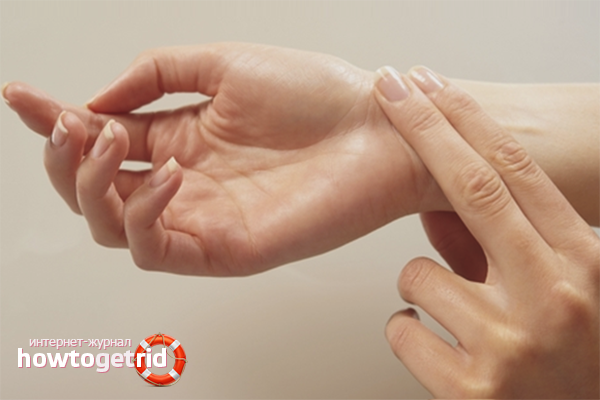
For an adult at rest, a pulse with 60-80 beats / min is normal. You can determine it by placing your fingers on the wrist or the radius of the other hand and counting the number of beats. For fidelity, change hands and count again. The results must match.To control the rhythm of the pulse, you need to know the original indicators. To do this, in the morning, before getting out of bed, about five minutes after waking up, you need to fix the frequency of strikes.
Rapid decrease in heart rate
First of all, you should visit the attending physician, who will determine the cause of the increased pulse and prescribe treatment for each category of patients individually.
It is recommended to start the day with a morning exercise in order to invigorate the body and strengthen the immune system. In addition, it is a good preparation for vigorous work.
In an emergency, the following methods can help reduce heart rate:
- Close your eyes, gently push the fingertips on the eyeball. Palpitations should normalize in half a minute.
- Take a deep breath, hold your mouth and nose with your hand, then try to exhale. This procedure will help to excite the vagus nerve, and heart contractions will begin to slow down.
- Lie face down on a flat surface. After 30 min, the pulse is normalized.
There are cases when the pulse rate reaches 200 beats. This will require emergency medical care.Before the ambulance arrives, it is advisable for the patient to induce an emetic reflex, take a deep breath, and then exhale with the mouth closed. Additionally, massage the eyelid at the nose.
Homemade recipes for reducing heart rate
Traditional medicine offers its own ways to reduce heartbeat.
- Spoon the dry motherwort with boiling water (1 cup) and insist hour. Broth sweeten honey and a few drops of peppermint. To spend on drink one month.
- Mix lemon balm, valerian, dill seeds and add hop cones. Each of the ingredients to take 1 tsp, pour 2 cups boiling water and insist half an hour. Take two weeks before meals for 20 minutes.
- On a spoon of calendula and motherwort, pour one glass of boiling water over, insist about three hours, strain. Drink after dinner for three weeks.
- Two tablespoons of crushed rosehip boil in 300 ml of water on low heat for 15 minutes, let cool and strain. Apply the decoction daily in one glass. A rosehip recipe is also recommended for hypotension.
If you regularly monitor your blood pressure, it will be easier to choose the best option in each individual case.
Normal pressure
Even in this case, a change in the heartbeat of up to 100 beats can be observed, and most often such deviations in a healthy person are caused by physical exertion. But it is enough to take a break, and medicines will not be needed.
Worse, when increased heart rate is accompanied by dizziness and discomfort in the sternum. First of all, it is necessary to lie down and release the neck and chest from clothes so that air can flow freely. Apply a scarf soaked in cold water to your forehead and hold your breath for a while. If the seizures recur, the consultation of a specialist is required.
High pressure
Rapid pulse indicates possible hypertension. As an ambulance, take medicine prescribed by your doctor to reduce pressure. This will help reduce the frequency of heart beats, and then the specialist should make recommendations for self-medication.
Low pressure
Increased heart rate causes headache, anxiety and fear, nausea and vomiting may occur. The most effective in this case tincture of valerian and motherwort, as well as heart drugs such as validol and valocordin.From natural products - honey, black currant, wild rose water.
Additional recommendations
Starting training in the gym, be sure to do a short warm-up. If the pulse rate increases during the session, pause the exercises and take a few breaths. Take a warm shower and finally a cup of green tea. In the future, increase physical activity gradually.
When heart palpitations are due to overwork, insomnia, or a stressful situation, valerian, motherwort, lemon balm, and St. John's wort can be included in the sedative collection.
Well normalize the reduction of the heart muscle black currant, hips and honey. If possible, these products should be present in the daily diet.
Do not use drugs without consulting a doctor and carefully read the instructions attached to them.
For the normalization of the heart rhythm and as a preventive measure, the best way is the right way of life. Give up bad habits, maintain sleep and nutrition.Fatty, spicy foods, alcohol, coffee, smoking are the first enemies for people prone to increased heart rate. And by all means move more. Not being able to actively engage in physical exercise, take walks, and while relaxing, massage your shoulder and knee joints.
Having mastered the primary knowledge of how to reduce the pulse at home, without having the necessary medicines, everyone can quickly help themselves and a loved one or reduce the risk of a tachycardia attack.
Video: which pulse is considered normal and which is dangerous to health

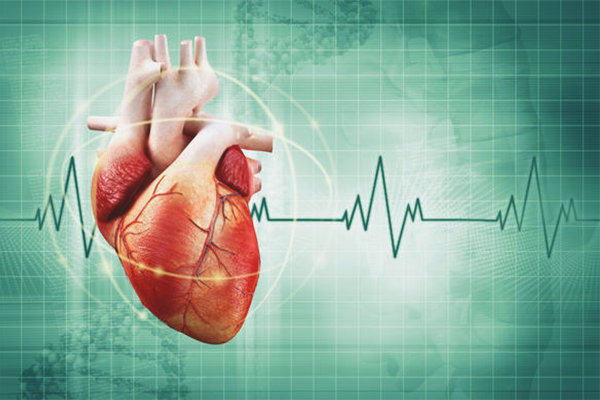
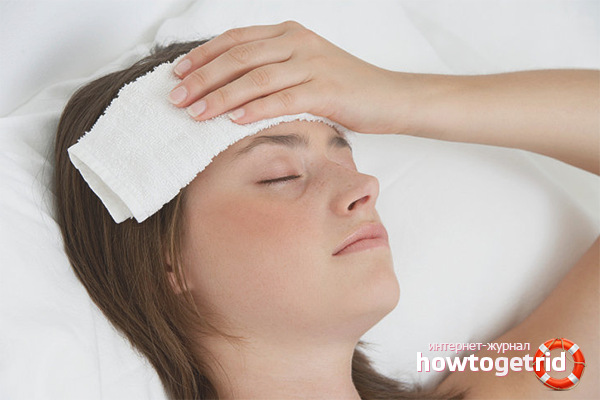


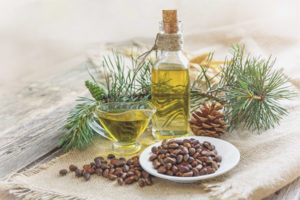
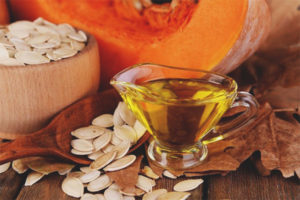
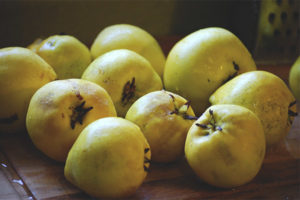

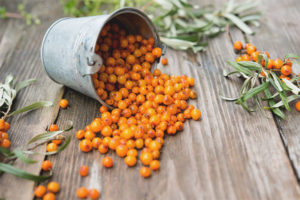

To send